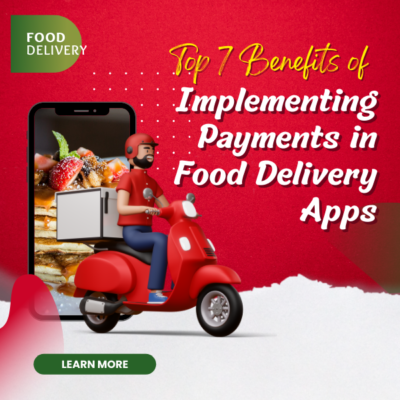Ever since the Covid-19 pandemic jolted us to the core in 2020, the world and its people have been trying to find ways to keep life going. It was during this time that people strongly deviated toward telemedicine apps. These solutions were embraced by people when they were stuck in their homes and couldn’t head out, and these apps continue to win hearts. Due to this reason developing doctor-on-demand apps has become a primary goal for businesses dealing with healthcare.
Hence if you are such a business, then now is the best time to invest in telemedicine app development as these services are still growing and will continue to rise for years.
Table of Contents
Market Size Captured by the Telemedicine apps.
Research from 2019 states that the telemedicine market registered 45 billion USD. Sales spiked during the Covid-19 situation when people chose to isolate themselves and downloaded telehealth apps to meet their medical requirements.
A US report called Merritt Hawkins Survey found that a fresh patient usually waits around 2-3 weeks to secure a doctor’s appointment. Then almost 70% of surveyed people favored an online visit over a physical consultation by their doctor. And there was 75 percent of people preferred texting their doctors.
Hence, the benefits are immense, and here we speak of some of the telemedicine benefits stated by the healthcare professionals themselves:
- Pivotal in reducing healthcare cost
- Minimizes time lost owing to traffic congestion or other issues
- Allows better control of the everyday schedule
- Enhances Patient Satisfaction
- Keeps patient’s data safe and secure
- More efficient in case of emergencies
- Availability of many specialists
- Additional revenue system for the doctors
- Maintains overall work-life experience among the physicians.
Usage of Doctor-On-Demand apps for the Doctors
Even after two since the Covid peak, the world is still living in times of social distancing where the scare of Covid keeps knocking on our doors now and then. And due to this situation, more and more people today are enthusiastic about trying virtual doctor consultations. The usage of doctor on demand like telemedicine apps has enhanced treatment management, patients’ quality of life, and reduced healthcare costs.
Even the doctors assert that telemedicine integration is an effective way to track and treat chronic illnesses more than the 10-15 minutes physical consultation. Keeping the locational gap in mind, today’s healthcare apps significantly transform how doctors & patients communicate. It won’t be wrong to say that the pandemic has changed the healthcare industry’s demands. Today, doctor-on-demand app development has become the primary goal of healthcare providers wishing to offer patients virtual and remote healthcare facilities.
Essential Features to Include in Doctor On Demand App
Many businesses coming up with doctor-on-demand apps are making considerable efforts to create the best apps for doctors & patients. This article discusses the features that make this category of apps stand out.
Appointment Scheduling
Scheduling Appointments are a crucial attribute of the doctor-on-demand app as it allows patients to request appointments and doctors who accept them. Hence, there are two dashboards the app has:
Patient Dashboard
Here, the app provides patients with the facility to request an appointment with their preferred doctor, add the appointment to their calendar via integrations, and reschedule/cancel an appointment in case the need arises.
Doctor Dashboard
This critical feature of the app is also for doctors to schedule appointments or accept appointment requests. Like, the app must offer calendar integrations with Google & Microsoft Calendars and enable ‘manager access’ to someone to schedule appointments on doctors’ behalf. An integrated workflow must also be to cancel or reschedule appointments if required.
Doctor’s Catalogue
This feature saves a lot of time for both patients and healthcare professionals. Also, it improves the accuracy of the match-making process between doctor and patient. Telemedicine apps like doctor-on-demand offer patient and doctor panels. The catalog includes details regarding the doctor, such as Qualifications, Address, Patient Health Record, Availability Schedule, Experience, Area of Specialization, Allocation & management of healthcare professionals.
Customized & Secure Video Consultation
The telemedicine apps offer a safe, secure, private, and customized video consultation environment for patients so they can share details of their condition with doctors. And that is the crucial aspect of the app. Same as an OPD or Clinic environment, the app must offer a secure voice & video calling feature enabling doctors to not only listen to patients but even remotely examine them. Ensure that these calls are encrypted and are airtight to hacking attempts.
Research from McKinsey & Company states that around 30% of respondents would be keen on telehealth solutions that offer features to enroll in video/online counselling sessions & in-app chat with a doctor. The cloud-based medical record-keeping of telemedicine data with HIPAA compliance of patient information & recorded video consultation safeguards app data security. The benefits include:
• Patients can communicate via teleconferencing, which allows them to clear their queries regarding symptoms.
• Replace in-person assessment with photos & video consultation.
• App Integration & Cloud solutions enable real-time communication and remote patient diagnosis.
Patient History & Electronic Medical Records (EMR)
EMR securely keeps the treatment history of patients. It is mainly responsible for entering data on a new patient and updating it with every recent visit. It facilitates further patient diagnostics by offering follow-up of the patient’s condition. EMR organizes complete information related to a health condition, reduces paperwork on the doctor’s part, and prevents the duplication of health records. It also helps handle security issues by ensuring the entire patient’s record card is only viewed by an attending physician.
Electronic Health Records (EHR)
EHR, on the other hand, digitally stores all data of patients’ blood work, prescriptions, laboratory tests, radiological images, and precious treating doctors. It is time-saving for patients and doctors to monitor health progress and inspect when required. The telehealth app, integrated with EHR, allows streamlined patient record processing & consolidating in one area. It also prevents data duplication from virtual visits. The doctor-on-demand like telemedicine apps integrated with EHR allow seamless telehealth billing services and much more, like:
- Easy-to-use
- App data security/HIPAA compliant-app
- Early diagnosis
- Enhanced patient data collection
- Streamlined patient care
- Streamlined telemedicine billing
- Proper data processing of telemedicine visit
- Integrated payment systems
- Cost-effective telehealth reimbursement
e-Prescription or Digital Prescription
The e-prescription functionality benefits the patients, pharmacies, and prescribing doctors by bringing the healthcare service faster. The telehealth apps integrated with this feature are already compliant with telemedicine regulations, like:
- Food & Drug Administration (FDA)
- Electronic Prior Authorization (EPA)
- Health Insurance Portability & Accountability Act (HIPAA)
- U.S. Department of Health & Human Services (HHS)
- HITECH Meaningful Use Stage (MU-1) and Meaningful Use Stage 2 (MU-2)
The e-prescription feature allows doctors to produce and send prescriptions without errors, helps save time, and enhances communication and patient satisfaction. It even enables the physicians to access records on the medical insurance form, offering all the information in electronically linked pharmacies. Its benefits are:
- Includes a complete list of medications with dosage instructions.
- Reduced pharmacy & prescription error
- Medication Tracker
- Decreased re-hospitalization
- Reduced medication cost
- Allows doctors to understand the patient’s history easily
- Integrated pharmacy business for same medicine supplying pharmacies
- Easy & Fast prescription renewal
- Streamlined process & enhanced patient safety
In-app Chat & Messaging
This functionality allows the patients to privately send text messages to doctors on an encrypted platform to clear any doubts they have regarding the prescription or their condition. The timely intervention can stop certain conditions from aggravating and revert the side effects as patients can reach doctors over text or voice messages.
Medication Tracking
Patients must maintain a routine post consultation to remember to take the medicines. Hence, a telehealth app must offer its users (patients) to add prescriptions to a customizable calendar that sends alerts or reminders to take their medication at a set time every day. This can be done via calendar integrations.
Multiple Payment Options:
An integral feature that a doctor-on-demand app requires is a secure payment gateway that must offer various payment modes to its patients. In case of a payment cancellation or rescheduling, the telehealth app must provide ways to credit back the payment initiated by customers as per the payment rules. Developer platforms like PayPal APIs (U.S. & worldwide) and Razorpay API (India) are available to integrate payment gateways with web & mobile apps.
In-App Document Management System:
The next crucial feature is enabling the users to organize & track health information on their own. Patients with extended treatment plans find it helpful to have assembled medical records; hence in-app document management system is pivotal in telemedicine apps. This way, the patients can organize and track their medical records and simply their life and feel grateful for the app.
Online Prescription Delivery:
Once the patients are done with the online consultation with the doctors, they can have the prescription delivered online to the nearby pharmacy to deliver their medicines to their doorstep.
Telemedicine Compliant:
In the case of creating a telehealth app, one crucial step is to be aware of the legal compliances and meet them. At Octal Info Solution, we have extensive doctor on demand app development experience and good knowledge to ensure your app complies with all the legal requirements. The standard regulations your telemedicine app must comply with are HIPPA, HL7, GDPR, IMLC, PIPEDA, Data Protection Directive 1995/46/E.C., and the e-Privacy Directive 2002/58/EC/IEC 62304.
Conclusion
If you have a doctor-on-demand app idea, it is the right time to take the plunge into the telemedicine business as it is on a growing scale. In the post-pandemic world that we live in, telemedicine is revolutionizing the healthcare industry. You can contact us to have the best doctor-on-demand app development partner. In the past, we have developed more than (insert figure) mobile apps of different categories and created several apps on healthcare solutions with voice, text, and video calling features. We are proficient at creating secure and HIPAA-compliant apps for our healthcare clients.



